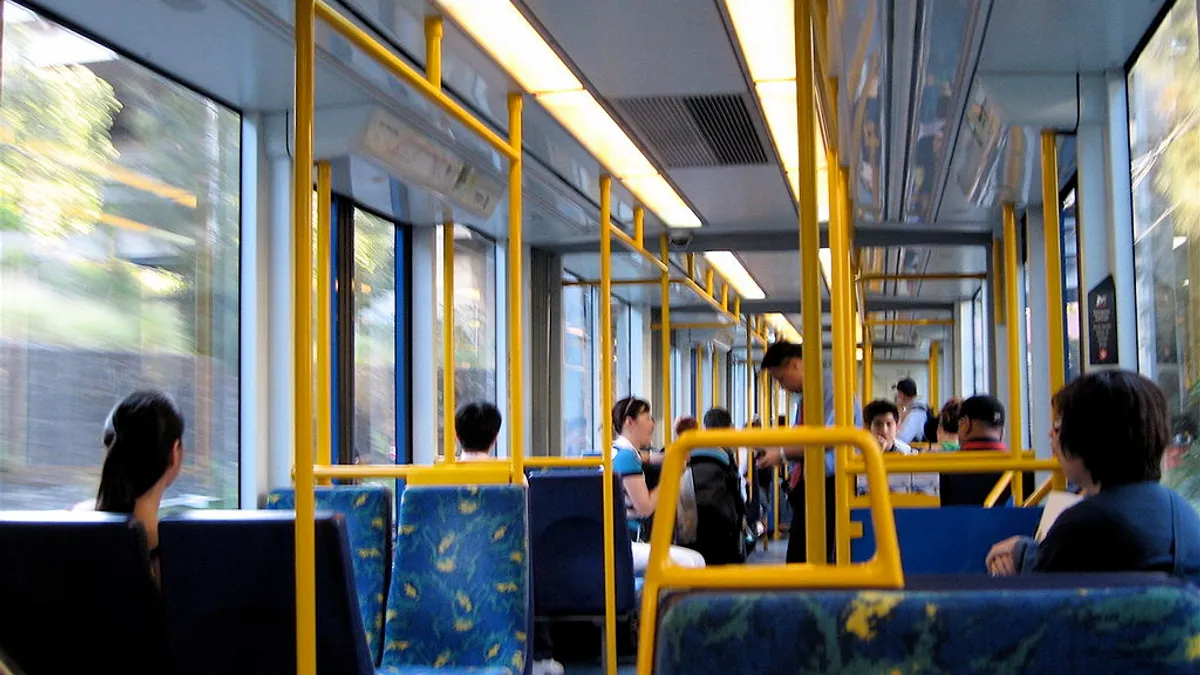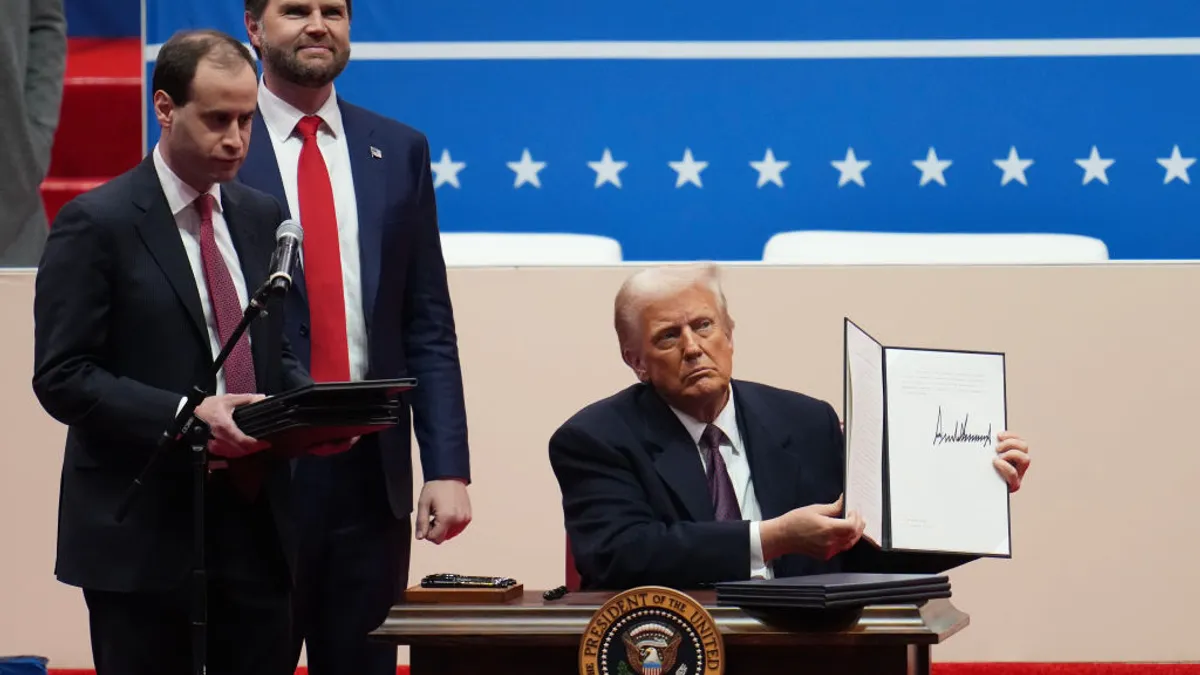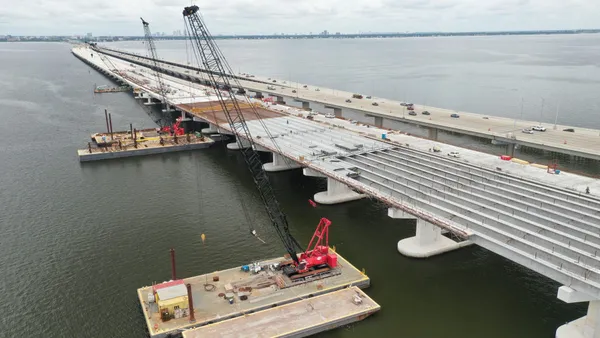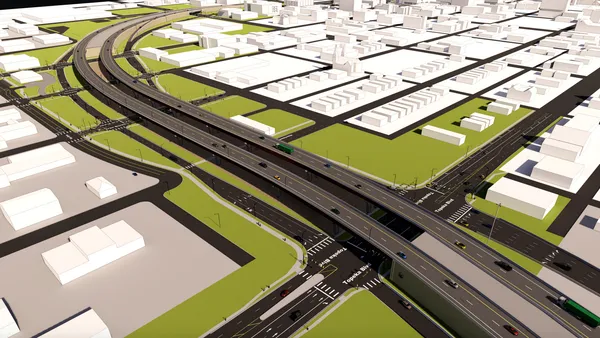Dive Brief:
- The Arizona Chapter of the Associated General Contractors of America is suing the City of Phoenix and a local advocacy group, asking a judge to toss out a proposed ballot initiative that would have voters revisit the issue of light-rail funding, reported The Arizona Republic. Financing of multimodal transportation has reportedly been approved three times.
- Building a Better Phoenix, which opposes light-rail expansion in the city, submitted 40,000 signatures near the end of last year in order to get its Building a Better Phoenix Act on the ballot. The proposed legislation would amend the city’s charter so that what the group says is $7 billion worth of light rail extensions would be terminated and the money would be directed to other types of transportation projects. The AZAGC maintains in its lawsuit that the group: paid petition gatherers by the signature, which the AZAGC alleges is illegal in Arizona; did not tell signers that the initiative could affect current light-rail service; inaccurately implied that all light-rail money would go to other projects; and wrongly suggested that the act would save the city money.
- The group told The Republic that the AGC's lawsuit was a "frivolous" move by the construction companies that are in line to benefit from construction of the light-rail extensions in question. The group maintains that Phoenix residents and small business owners were never informed about the negatives of light-rail expansion such as increased traffic congestion, crime and gentrification in “culturally sensitive” neighborhoods; business-killing construction and that the city is spending 40% of its transportation revenue on the 1% of residents that use light rail.
Dive Insight:
The Metropolitan Transit Authority of Harris County (Houston) has proposed a $7.5 billion plan, including 240 transportation projects for the next 20 years to address the anticipated growth in population and isn’t limiting the scope to one or two modes. The Metro’s plan would include 20 miles of light-rail extensions, 75 miles of new bus rapid transit service, 11 miles of new and upgraded high-occupancy vehicle lanes and 260 miles of bus routes. The authority is also expected in November to ask voters for the green light to borrow $3 billion for the plan, according to the Houston Chronicle. It is counting on state and federal grants to finance the remainder.
When the FTA announced last month that it had executed a $1.17 billion Full Funding Grant Agreement for the Central Puget Sound Regional Transit Authority's (Sound Transit) Lynnwood Link light-rail extension in Seattle, Washington, K. Jane Williams, acting Federal Transit Authority administrator, told The Seattle Times that Sound Transit’s application was aided by the fact that the authority had secured local funding to pay for the majority of the project, much like in Houston.
Williams also added that despite allegations that President Donald Trump’s administration was hesitant to fund local or regional transit projects, the FTA had executed $3.3 billion across 13 funding agreements since Trump took office and had another four totaling worth $1.5 billion in the pipeline.













